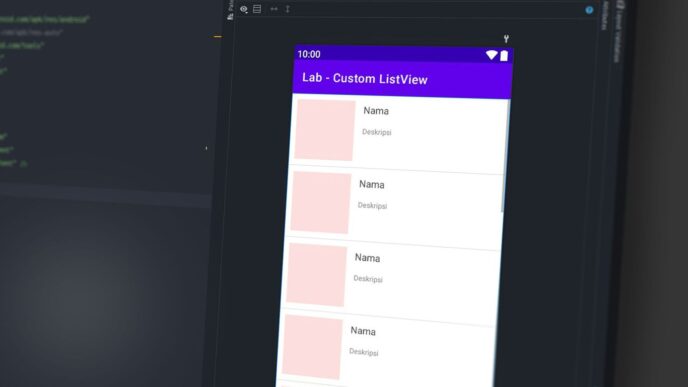Looking for ways to keep your online activity private and secure? You’re in the right place. In 2025, the need for online protection is bigger than ever. We’ve checked out a bunch of options to help you find the best browser VPNs. Whether you want a browser with a built-in VPN or a top-tier VPN service to go with your current browser, this guide breaks down what you need to know.
Key Takeaways
- Opera, Aloha Browser, and Epic Privacy Browser offer built-in VPN features suitable for different users.
- Full-service VPNs like NordVPN, Surfshark, and ExpressVPN provide more advanced security and privacy than browser-integrated options.
- NordVPN is recognized for strong security, a large server network, and good speeds.
- Surfshark is noted for unlimited device connections and ease of use.
- ExpressVPN balances speed, security, and user-friendliness for a smooth online experience.
1. NordVPN
NordVPN is a really solid choice if you’re looking for a VPN that just works well for most things. It’s got a huge network of servers, over 7,000 of them spread across 126 countries, which means you’re likely to find a fast connection no matter where you are. They claim speeds up to 1,100Mbps, which is pretty impressive.
What I like is how easy it is to use. Even if you’re not super tech-savvy, you can usually get connected to a server in seconds. It’s also great for getting around those annoying geo-blocks on streaming sites like Netflix or BBC iPlayer. Plus, it’s compatible with pretty much everything – Windows, Mac, Android, iOS, you name it. You can even put it on your router to cover all your devices.
Here’s a quick look at some of its specs:
- Server Locations: 126 countries
- Average Speed Loss: Around 6% download, 4% upload
- Supported Devices: Up to 10 per account
- Money-Back Guarantee: 30 days
They also have extra features like Double VPN, which routes your traffic through two servers for added privacy, and a kill switch that cuts your internet if the VPN connection drops. It’s a good all-around package, especially if you want something reliable for streaming and general online security.
2. Surfshark
Surfshark really stands out, especially if you’re looking for a VPN that won’t break the bank. It’s easily one of the best value options out there. When you first sign up, the price is incredibly low, making it super accessible. Plus, they let you connect an unlimited number of devices with just one account, which is pretty wild when you think about it. So, your phone, laptop, tablet, even your smart TV – all protected.
What’s also great is how easy Surfshark makes things. The apps are straightforward, even if you’re not super tech-savvy. They’ve got features like split tunneling, which lets you choose which apps go through the VPN and which don’t, and MultiHop, where you can route your connection through two servers for extra security. They also have a feature called CleanWeb that’s supposed to block ads and malware, though it’s not as robust as some competitors.
For streaming fans, Surfshark is a winner. It consistently unblocks popular services like Netflix, and we didn’t run into any buffering or error messages during our tests. It’s also a solid choice if you do a lot of torrenting.
Surfshark’s privacy setup is pretty solid too. They have a strict no-logs policy, meaning they don’t keep records of what you do online. They use strong encryption, AES-256-GCM, which is top-notch. The only real downside we found was that speeds could be a bit inconsistent on certain servers, and the price does jump up significantly if you let your subscription auto-renew. So, keep an eye on that renewal date if you want to keep the low price. If you’re curious about their full feature set, you can check out our in-depth Surfshark review.
3. ExpressVPN
ExpressVPN is a solid choice if you’re looking for a VPN that just works, without a lot of fuss. Seriously, the apps are super clean and easy to figure out. Even if you’ve never used a VPN before, you’ll probably be connected in less than 10 seconds. It’s got servers in a ton of places – 105 countries, to be exact, with over 3,000 servers in total. This means you’ve got a good shot at unblocking content from all over the world, and speeds are generally really good, which is nice for streaming or downloading stuff.
What’s cool is that ExpressVPN is pretty good with torrenting and P2P stuff. They also have this thing called TrustedServer technology, which basically means the servers are wiped clean every time they restart. They’ve also had independent audits done on their systems, which is a good sign they’re serious about privacy.
However, it’s not the cheapest option out there, especially if you don’t plan on using all the extra features they bundle in. While they used to have a one-size-fits-all price, they now have different plans. The basic plan is more affordable, but you miss out on some of the extras. If you’re someone who likes to tweak every little setting on your VPN, you might find ExpressVPN a bit too simple. For example, it doesn’t offer things like port forwarding.
Here’s a quick look at some of its features:
- Server Network: Over 3,000 servers in 105 countries.
- Ease of Use: Very straightforward, one-click connection.
- Privacy Features: TrustedServer technology, strong encryption, and regular independent audits.
- Compatibility: Works on pretty much everything – Windows, Mac, iOS, Android, routers, and more.
- Extra Bundles: Some plans include a password manager, ad blocker, and data leak monitoring.
4. Proton VPN
Proton VPN is a solid choice, especially if you’re really into privacy and security. They’re pretty transparent about everything, and their apps are open source, which means anyone can look at the code to make sure it’s safe. That’s a big deal for trust, you know? They also have this feature called Secure Core, which routes your traffic through two VPN servers instead of just one, adding an extra layer of protection. It’s like sending your mail through two different post offices before it gets to its final destination.
When it comes to features, Proton VPN has the usual stuff like a kill switch and split tunneling, which are pretty standard these days. But they also offer things like NetShield, which is supposed to block ads and trackers. In my testing, it wasn’t as good as some other VPNs I tried, but it’s still a nice addition. For those who need it, they also have port forwarding, which is handy for P2P file sharing, but it’s only on specific servers.
Proton VPN does have a free version, which is pretty generous with unlimited data. However, the speeds are slower, and you’re limited to just a few server locations. Plus, it won’t unblock streaming services. The paid version is a bit pricier than some competitors, but you do get that extra privacy focus. Their customer support is decent, though the live chat isn’t available 24/7, which might be a drawback if you’re in a different time zone. If you’re looking for a VPN that prioritizes privacy and offers some advanced features, Proton VPN is definitely worth a look, especially if you’re already using other Proton products.
5. Private Internet Access
Private Internet Access, or PIA as it’s often called, is a solid choice if you like to tinker with settings and have a lot of control over your VPN experience. It’s not really for folks who just want to click a button and forget about it; the apps can feel a bit much if you’re new to VPNs. But if you’re someone who enjoys tweaking things, PIA gives you a lot of options.
One of the standout features is the ability to adjust encryption levels. You can go with AES-256 for top-notch security, which is what most people should use. But if you need a speed boost and don’t mind a little less encryption, you can switch to AES-128. They even have a mode with no encryption, which is pretty wild and only makes sense if speed is your absolute top priority, like maybe for some online gaming. It’s also great for torrenting because it supports port forwarding, something not many other VPNs offer.
PIA also has a really good ad blocker called MACE that does a decent job of stopping annoying ads and even blocking dodgy websites. Plus, they have a kill switch that’s pretty robust, stopping your internet connection if the VPN drops unexpectedly. This is super important for keeping your real IP address hidden. They also offer obfuscation, which is an extra step to hide the fact that you’re even using a VPN.
Here’s a quick look at what PIA brings to the table:
- Servers: Over 10,000 servers spread across 91 countries.
- Connections: You can connect an unlimited number of devices at once.
- Security: AES-256 encryption, a kill switch, MACE ad blocker, and obfuscation.
- Privacy: A strict no-logs policy that’s been proven in court.
- Speed: Generally good, though not always the fastest compared to some rivals.
While the speeds might not always beat out the top contenders, PIA’s customization and privacy features make it a strong contender, especially if you can snag one of their good introductory deals. It’s a VPN that rewards users who take the time to understand its settings, and it’s definitely a good option for keeping your online activities private. You can check out their latest pricing plans to see if it fits your budget.
6. Hotspot Shield
Hotspot Shield is a pretty interesting option, especially if speed is your main concern. It consistently showed up as one of the fastest VPNs we tested, with download speeds barely dropping from our usual connection. This makes it a solid choice for streaming movies or downloading large files without much fuss.
However, it’s not all perfect. While downloads are speedy, the upload speeds can take a hit, sometimes dropping by as much as 80 percent. So, if you’re uploading a lot of content, you might notice a slowdown. It also doesn’t have quite as many extra bells and whistles as some of the other top VPNs out there, and it struggled to access services like Disney+ in our tests.
On the security front, Hotspot Shield does a decent job. It uses its own Hydra protocol, which is pretty neat because it’s built for performance and uses strong encryption. Plus, it’s designed to work even in countries with strict internet censorship, which is a big plus for some users. They also had their no-logs claims checked by an outside company, which is good to see. If you’re looking for a fast connection for everyday browsing or streaming, and don’t need a ton of advanced features, Hotspot Shield is worth a look. You can even get a free plan for desktop users, though it has limitations. For those who want more, the paid version offers a 45-day money-back guarantee, giving you plenty of time to try it out. Finding a good web hosting service can be just as important for your online experience, so make sure you check out some expert tips on that too.
7. Opera
Opera is a web browser that comes with a built-in VPN, which is pretty neat if you’re looking for something simple. It’s free and doesn’t really limit how much data you can use, which is a big plus. You can turn the VPN on and off right from the browser settings, and it even lets you pick different virtual locations. This makes it easy to use for everyday browsing and adds a bit of privacy without needing a separate app.
However, it’s not quite the same as a dedicated VPN service. The free version has a limited number of server locations, only about 100 servers spread across three areas. This might not be enough if you’re trying to access content that’s blocked in your region. While they do offer a paid version, Opera VPN Pro, it still doesn’t offer the same range of features or server locations as some of the top-tier VPN providers. Recent tests show it’s good at unblocking things like Netflix US, though, which is a nice bonus for a free browser VPN accessing geo-restricted content.
Here’s a quick look at what Opera offers:
- Free and unlimited bandwidth: Browse without worrying about data caps.
- Easy integration: VPN is built directly into the browser.
- Multi-platform support: Available on Windows, macOS, Linux, Android, and iOS.
- Basic privacy features: Doesn’t log user activity.
While Opera’s built-in VPN is convenient for basic privacy needs, it lacks the advanced features and extensive server networks found in specialized VPN applications. It’s a solid option for casual users who want a bit more privacy without the fuss, but power users might want to look elsewhere.
8. Aloha Browser
Aloha Browser is a pretty neat option, especially if you spend most of your internet time on your phone. It’s designed with mobile users in mind, making it easy to use even if you’re not super tech-savvy. Think of it as a browser that comes with its own built-in VPN, which is handy for staying secure, particularly when you’re connected to public Wi-Fi.
What’s cool is that Aloha offers a free, unlimited VPN. It uses strong encryption, the AES 256-bit kind, which is what a lot of the big paid VPN services use. You get to pick from over 80 different locations, so if you’re trying to access content that’s only available in certain countries, this browser can help you out. They also say they have a strict no-logs policy, meaning they don’t keep records of what you do online. This is a big plus for privacy. Plus, the VPN protection extends to your whole phone, not just the browser itself, which is a nice bonus for overall security.
However, it’s not perfect. Compared to some of the more advanced desktop browsers, Aloha is a bit limited. You can’t install extra add-ons or extensions, which might be a dealbreaker if you rely on those for your browsing. Also, while the VPN is free and offers a lot of locations, the connection speeds can sometimes be a bit unpredictable. If you need a super fast and consistent connection all the time, you might notice some slowdowns. It’s great for general browsing and security on the go, but if you’re a power user needing lots of customization, you might want to look at other options. For a secure mobile browsing experience, though, Aloha Browser is definitely worth checking out Aloha Browser offers excellent security features.
9. Epic Privacy Browser
Epic Privacy Browser is a solid choice if you’re really trying to keep your online activity private. It’s built with a strong focus on blocking trackers and ads, which can make your browsing sessions cleaner and more secure. Think of it as a browser that actively tries to prevent websites and advertisers from following you around the web. This can be a big relief, especially if you’re dealing with sensitive information or just don’t like the idea of being profiled.
What’s neat is that Epic includes a built-in encrypted proxy, which works a lot like a VPN. It helps protect your internet connection, and you can even choose different server locations, though the selection is pretty limited – only seven options are available. This browser is great for stopping those annoying tracking scripts and preventing fingerprinting, which is a way websites try to identify you even without cookies. It’s designed to be a shield against unwanted digital snooping. However, it’s not all perfect. Because Epic is so strict about privacy, it can sometimes cause problems with certain websites that might not load correctly. The interface isn’t as slick as some of the more mainstream browsers out there, and it’s only available for Windows and macOS, so if you do most of your browsing on a phone or tablet, this might not be the best fit for you. It’s a bit like trying to get a new spaceship off the ground; it takes some getting used to, but the potential is there Virgin Galactic’s new spaceship.
Here’s a quick rundown of what Epic offers:
- Strong privacy features: Ad and tracker blocking, plus fingerprinting prevention.
- Built-in encrypted proxy: Offers network protection without needing a separate app.
- Limited server locations: Only seven server options are available.
- Potential website compatibility issues: Due to its strict blocking.
- No mobile version: Primarily for desktop users.
10. DuckDuckGo
DuckDuckGo is primarily known as a search engine that prioritizes user privacy, and it’s not really a browser in the same way that Opera or Aloha are. However, they do offer a "Privacy Pro" bundle that includes a VPN service. This bundle is aimed at users who already use the DuckDuckGo browser and want to add an extra layer of security.
It’s a pretty straightforward setup if you’re already in their ecosystem. The VPN itself provides basic protection, masking your IP address and encrypting your internet traffic. It’s not packed with the bells and whistles of dedicated VPN services, but for someone who just wants a bit more privacy without a lot of fuss, it could work.
Think of it as a simple add-on rather than a standalone powerhouse. If you’re already a fan of DuckDuckGo’s privacy-focused search, checking out their Privacy Pro bundle might be worth considering for a bit more peace of mind online. It’s a decent option if you’re not looking for advanced features and just want to keep your browsing habits more private.
Wrapping It Up
So, we’ve looked at some solid browser options that come with their own VPNs built right in, like Opera, Aloha, and Epic. They’re pretty handy for everyday browsing and offer a good step up in privacy without much fuss. But if you’re really serious about keeping things locked down online, or need to access content from all over the world, a dedicated VPN service like NordVPN, Surfshark, or ExpressVPN is probably still your best bet. They just offer more features and a wider reach. Think about what you need most – convenience or maximum protection – and pick the tool that fits your online life best.
Frequently Asked Questions
Which web browsers come with a built-in VPN?
Some browsers, like Opera, Aloha Browser, and Epic Privacy Browser, include a VPN right inside them. These browsers offer different features and levels of privacy. DuckDuckGo is another option to check out, as it also has security features built in.
Does Google Chrome have a VPN?
No, Google Chrome does not have a VPN built into it. To use a VPN with Chrome, you’ll need to get a separate VPN service or a browser extension. Most VPNs work fine with Chrome.
Does Mozilla Firefox offer a VPN?
Firefox doesn’t have a VPN built-in. However, they do offer a separate paid service called Mozilla VPN. You can use this service with your preferred browser, including Firefox.
What’s the best free browser with a VPN?
Opera is often called the best free browser with a VPN. It has a free VPN that you can use without limits, making browsing easier and more private without costing you anything.
Is using a VPN worth the trouble?
Yes, using a VPN is a good idea. It scrambles your internet traffic, helps you get around location blocks, and keeps your information safe when you’re using public Wi-Fi. While it doesn’t fix every online problem, VPNs offer many benefits for your security and privacy.
Which VPN is the fastest in 2025?
When it comes to speed, Hotspot Shield is known for offering very fast download speeds. However, services like NordVPN also provide excellent speed along with strong security and other great features, making them a top choice overall.












